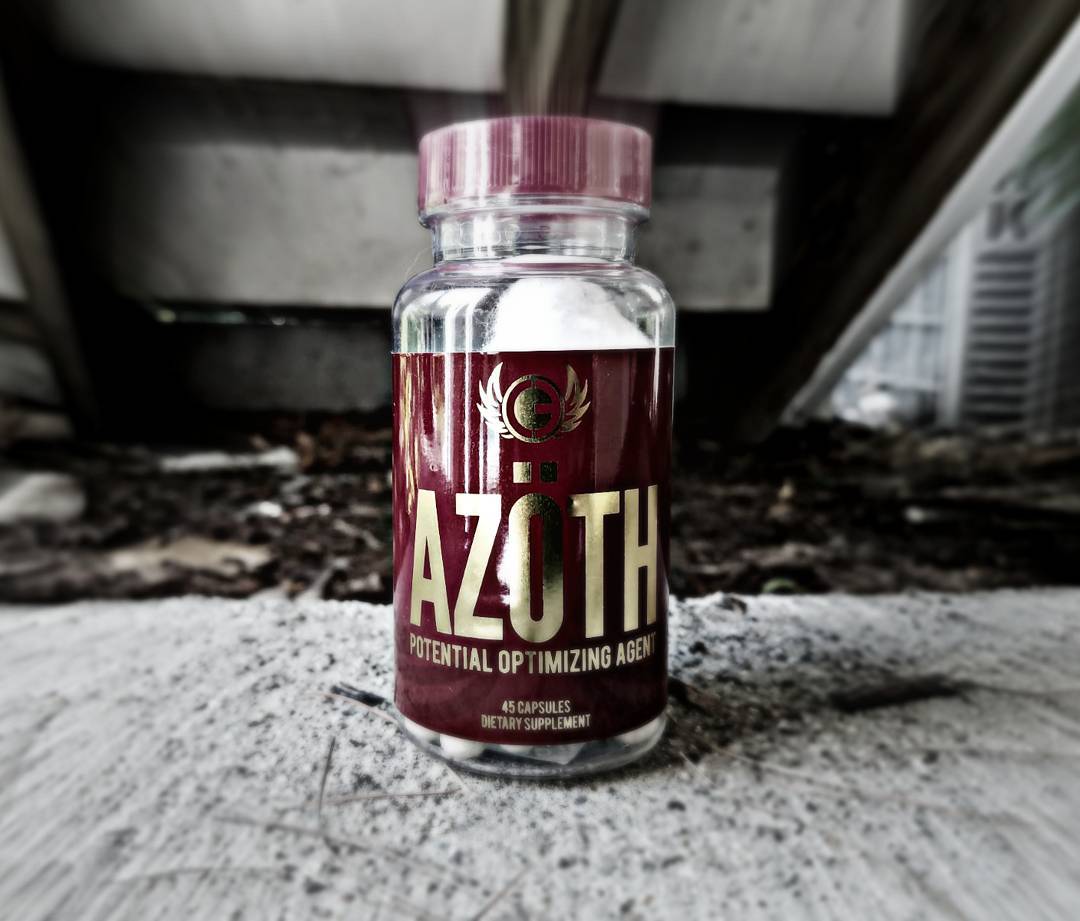
We sit down for a one on one interview with founder and creator of the super-powered nootropic AZOTH, Prady Tewarie, to discuss the brand’s meteoric rise.
Today, we’re going up close and personal with one of the hottest nootropic companies / products on market in AZOTH. We first caught wind of the high-powered nootropic supplement about a year ago when the first version was released, and it a doozy. We were further impressed when v2 was released during the summer of 2017.
Suffice it to say that the brand/product has taken off like a rocket, garnering attention from big players outside of the industry, including the Sharks of ABC’s Shark Tank!
We recently sat down with the owner and founder of AZOTH to learn more about the company and how they got to where they currently are. Additionally, we spoke at length about what it takes to make a company successful and the constant grind that goes into making a top notch brand.
Azoth Total Focus – Deals and Price Drop Alerts
Get Price Alerts
No spam, no scams.
Disclosure: PricePlow relies on pricing from stores with which we have a business relationship. We work hard to keep pricing current, but you may find a better offer.
Posts are sponsored in part by the retailers and/or brands listed on this page.
What is AZOTH?
It might be a little confusing at first, but AZOTH is both the company and the name of the nootropic supplement as well. The business is owned and operated by Prady Tewarie who founded the company with the motto of “Get SH*T DONE” and the end goal of Optimizing Human Productivity.
”Time is the greatest equalizer and no matter our background or resources, we all get 24 hours a day and it is up to us on how we spend it. At the end of the day, the world is run, changed, and moved by those who get sh*t done and all the skill, talent, and money in the world can’t make up for it.”
— Prady Tewarie
To date, the brand has sold over 10,000 bottles of the new AZOTH V2 in only 134 days across 37 countries. The product has even caught the attention of Kevin Harrington, one of the original sharks on Shark Tank, who recently entered into a partnership with Prady to increase brand awareness and signed a deal to air AZOTH on cable networks such as ESPN, Fox, and Bravo beginning May of 2017.
Interview with Prady Tewarie
-
Why did you start AZOTH?
”The issue with Nootropics was (and still is) that you have to source the raws from the manufacturer, put them together yourself and weigh them out yourself. It was a huge hassle getting all these powders and a big mess. Then you have the pre-made stacks and frankly, they were and are still crappy – passing off proprietary blends and caffeine blends as nootropics. (Which I frankly think is a shame, sorry ONNIT/NeuroPeak)
This is why I started AZOTH less than a year ago. I contacted the best manufacturers and put together one of the strongest Nootropic stacks that I could legally produce and worked together with the guys at NutraCap/Hi-Tech and AZOTH 1.0 and then AZOTH 2.0 were born. Our mission is simple produce products that help people become more productive and get Sh*T done, nothing less.”
Yes, you read that right, AZOTH is manufactured at Hi-Tech Pharmaceuticals!
-
What drew you into the supplement industry?
”Coming from a humble background I’ve always focused my attention on being as productive as possible. Time is the greatest equalizer and no matter our background or resources, we all get 24 hours a day and it is up to us on how we spend it. At the end of the day, the world is run, changed, and moved by those who get sh*t done and all the skill, talent, and money in the world can’t make up for it.
Armed with that belief, I didn’t let anything stop me. By the time I hit Law School, I was training for my pro card, growing five businesses and a full-time student pursuing my doctorate. I don’t have any special gifts, I’m on the lookout for ways to be productive and determined to make the most out of every single day
One of the things I was using on and off were pre-workout products and caffeinated drinks. Unfortunately, they often left me with headaches and crashes – making me more unproductive in the long-run. These products are created for athletes and they need a kick before a game or before a training session. So when Nootropics came on the scene a few years back and offered to improve productivity without a crash, I was immediately hooked.
-
There’s a new supplement company popping up every other day in the industry it seems, what is AZOTH doing different to separate itself from the droves of other fly-by-night operations flooding the market?
”When i started with AZOTH, I was pretty clear on how I wanted to do things.I didn’t see a point in making something that was already out there. The product had to be compliant, and a real, true nootropic. So the initial spend had to be almost 95% on product development. This meant there would be nothing left for marketing and our initial batches wouldn’t have enough margin built into it for distribution. So what was our strategy? Don’t do what bigger supplement companies do. Anyways, I had no interest in a marketing company, I wanted to create high-quality supplements. And so I did.
Business is about your customers, not about your competitors. At the end of the day, your customers don’t care if your office is on Times Square or in your dorm or whether your mentor is a Silicon Valley Billionaire or your mom. They care about the product you are selling them and the value you are providing. Value is the greatest equalizer. It’s not about what you have, it’s about what you can give. And just like you can’t do what the big companies do, neither can they do what you do.
Our first and foremost goal and marketing plan was to build VALUE – in everything we do and in everything we provide.”
-
Speaking of marketing, what is your approach towards marketing AZOTH, and how has your past experiences with various businesses shaped you plan for marketing AZOTH?
”1. Building great relationships I made it a point to have great customer service. For the first 1,000 orders, I hand wrote every label and even included a handwritten note inside the packet. We’ve given out probably 2,000 free bottles, and ship around the clock- Saturdays, after hours, you name it. It’s not uncommon for me to drive to a 24 -hour USPS service somewhere in the middle of the state to ship out products at 1 or 2 AM because it means a customer will get it earlier. Then, when we started getting orders from all over the world – Sri Lanka, India, New Zealand – we didn’t refuse and just figured out a way to get it to our customers there. Did we often not even break even with those sales? Almost all the time. Small stuff like this matters. This is the type of stuff that big companies are unable to do, and this is exactly where we’ll beat them out, all day.
This relationship building isn’t just something we provide to our consumers, but also to any retailers we work with.
One of the key hurdles for startups is realizing that most retailers order directly from distribution companies, and don’t do direct sales. In our case, this was a problem.Thus, since our margins didn’t support distribution through the big distributors (who ask close to a 40-60% discount on top of wholesale pricing), we approached all of our retailers directly, and personally – good ‘old cold calls, store demos, and in-person meetings. And once we got noticed, we’d work with them on their terms, including deferred payments, “pay to play (only get paid once stocked),” super low MOQs(12 or less) and a 5-day fulfillment guarantee; we even visit the stores and educate each and every customer on the product. Building relationships is key, and it doesn’t cost six figures to build it. Now we’re in a position where stores reach out to us, which is great.
2. Transparency
Another aspect of this all is that we have refused to pay for positive reviews, we haven’t done any affiliate marketing, we don’t have any IG stars, and we don’t hide behind our labels. This is a long-term strategy, and one that might take time to pay off, but I think it’s the right thing to do. The market has changed considerably and the notion that customers are “dumb” and the company’s “experts” is outdated.
Most customers today are well-informed, even to the point I’d say they are more informed than the sellers. To that effect, it’s high time we treat our customers like that and don’t think they’ll fall for every gimmick out there. It’s poor taste and frankly offensive. When I find out that some of the major players in the field are buying reviews or calling themselves “Instagram companies” instead of supplement companies, it leaves a bitter taste in my mouth. That might be because I’ve spent nearly all my life on the other side of the table – as a consumer of fitness products and I know the value of money that people are investing in these products. Do I really want to tell that High-School student that his hard earned cash that he’s spent raking leaves all of his vacation just went into a T&A photoshoot? Sorry, but no. For purposes of complete transparency, I’ve started to write my own blog on the site where I cover some of the in-depth topics that have to do with the development of the company but also on peak-productivity and motivation. This goes way further and again, doesn’t cost me an arm and a leg.
3. Stop direct advertising. We didn’t allocate any funds for direct advertising or for sponsoring any IG/IFBB pros or stars and instead, encourage each and every one of our customers to be our “star.” Our biggest marketing push has been in the form of our Unsung Heroes Contest – where we have people submit to us a story where they’ve had obstacles in their lives, and how they’ve overcome it. These stories are attached with a photo, which is then shared on our site and out socials. Again, instead of just following a strategy of a regular ad, we did something else and focused on providing “value” for the consumer. The consumer gets nothing out traditional advertising.”
-
Nootropics certainly are the hot trend in the industry right now, with seemingly everyone coming out with their own formula. What’s your assessment of the current nootropic supplement landscape?
”Nearly all top-10 selling Nootropics on Amazon are full of proprietary blends and grossly underdosed. We are talking at levels where the ingredients have absolutely no possible effect. For example, the top selling Nootropic on Amazon consists of a proprietary blend of about 700 mg of a dozen ingredients combined. Two of these ingredients by themselves, Phosphatidylserine and Tyrosine should combined be dosed about 700 to 1,000 mg to be anywhere near effective. So needless to say 700 mg for a dozen ingredients, is a joke. There’s no way it can have ANY effect at all. I for one am amazed at the amount of raving reviews these products get. I find it suspect.
With a proprietary blend, companies can put as little as 0.5mg of one expensive ingredient, and fill the rest with cheap capsule fillers. You have no idea what is in it. When this company that I used as an example started out, they probably spent all their money on advertising and had a paltry budget for manufacturing the product. With a prop blend they’re getting a steal on the manufacturing and passing the rest of the real cost – advertising, photographs, and other marketing tools – onto the consumers who are lining up to buy into it.
Here’s the big point I want to make though – once the company is financially healthy, what incentive do they have to suddenly go spend their new earned dollars into product development when that’s not what built it in the first place? None. This is more rampant in categories like Nootropics because this is a category that’s largely dominated by mainstream consumers and not those in the fitness community – who are well aware of the trappings of prop blends, clinical dosages, and the snake oil sales that go behind the scenes. An average college student using Alpha Brain has no idea what the proper dosage of Phosphatidylserine is and will probably never look into it – to Onnit’s advantage.”
-
What are some of the biggest challenges you’ve encountered along the way?
”There’s this idea that because the supplement industry is fairly unregulated, that it’s a walk in the park to make a lot of money. That’s an illusion. Yes, the barrier to entry within the supplement industry is fairly low. People get excited about this, not realizing that this comes at a huge price. Because there are so many companies vying for a piece of the pie, standing out is extremely difficult and most companies go bankrupt in the first 12 months. The side effect of this is that most companies- in order to compete- have had to focus almost exclusively on marketing to the extent that they’ve become “marketing companies” instead of supplement companies. To some extent, you can’t blame them.
To paint a more accurate picture, I’ll use this example: an average bid for the word “pre-workout” is about $3-5 for 1 competitive click on Amazon. Note, as a new company you’ll need to spend more to be competitive in order to rank, so we’ll use the higher figure. On average, there’s a 5-7% CTR resulting in a buy (probably lower, but I’ll be super generous here.) So it would take $500 for a company to get 25 clicks resulting in a sale. That’s $20 per sale! If the product costs $20 to produce and Amazon’s fees are about $8, a company is spending $48 per sale! As a pre-workout, the top tier products are going for about $29-$35. So per sale, a company goes in at least $15+ of loss pricing it at middle of the pack. Since VCs (venture capitalists) aren’t running towards sports nutrition companies to hand them millions of dollars, what do companies do? They create cheaper products by underdosing them, or has recently been the case, just lying on the label. Or as most companies do – go bankrupt.
The bottom line is — there’s a lot of expenditure that goes into running a supplement, and surprisingly not much of that money goes into the products themselves. With the remaining margins you have, you have to then factor in distribution and wholesale costs. RIght away, a small startup is looking upward of 6 figures in the first few months of operation, that is, if they want to follow the modus operandi ot their competitors.
Reviews can make or break you
”Another aspect of marketing your supplement has to do with reviews. Reviews are big business, because the first thing people do is run a google search on the product once they hear about it. Review sites have this figured out and they’ll often exploit this. For example, there are a dozen or so sites with huge domain authority that have hired an entire staff of writers from India/Bangladesh who scour for products on Amazon and deliberately write fake reviews without ever trying the product. We got hit with these a few times. Worse yet, they’ll send you an E-mail saying that they’d take it down and change the review if we paid them a certain amount of money ($2K+) Better yet, they had never tried the product. (*NOTE: SR did an expose on this.) Because these sites have a high domain authority, if you search your product name, this poor review will show up on the first page, and as a startup you’re screwed.
Then there’s “legitimate ways” for paying for reviews. Amazon has a “pay for reviews” program under Amazon Vine for which you have to pay them an additional $3K-7K per SKU and they’ll send customers free samples of your product in exchange for reviews. Then there’s fiver, E-lance…etc. so it goes.”
-
AZOTH has been around for just about a year now, how would you sum up what the first year has been like?”
”In life and in business, your lack of resources can be an advantage, forcing you to be more inventive with the little that you have. Sure, you won’t be able to do things that your competitors are doing, but neither can they (or do they want to) do what we can.
The kicker is:
- We don’t have any social media managers
- We don’t have any sponsored athletes
- We don’t pay for Adwords
- We don’t have a film crew
- We have never paid to induce a positive review
- We currently do not have any newsletters we send out
- We have no affiliate marketing
- We don’t spam and collect E-mails
- There is no “subscription” option when you buy our product, taking advantage of the “autopay” functionality that most people forget to turn off on their online purchases
- We don’t write blog posts for machines (SEO) – we write them to be read by humans. (I disabled SEO for our websites even)
- We were able to land all these sales on a total marketing budget of less than 5% of our total spend”
-
It’s clear you’re taking a vastly different approach than the majority of other companies in the game, what has the result been with this rogue approach?
”The results have been strong. We just launched our product in August and have already made over 10,000 sales, nearly 90% of them coming from direct orders from our website and are on our way to doing well over six figures in profits this year. In our first month on Amazon, we reached the top 40 in the sports nutrition category and are hovering around the top 100 mark.
As a result of our sale numbers, we were able to garner a lot of press releases in some heavy-hitting papers and were recently approached by Shark Tank Star Kevin Harrington, with whom we have signed a deal to air our product on cable networks such as ESPN, Fox, and Bravo starting in May of 2017 and are hoping to move thousands of units.
We are distributing our products in the UK and EU through our distributor, PowerMyself and soon in Australia. We are already in over a dozen stores, and plan to roll out in over 50 stores in the next year, including in national vending machines and large chain grocery stores.
-
It’s pretty clear you’re knocking it out of the park, are you planning on releasing any other products in the coming months?
”We’re planning to create 5-10 more SKUS of products that optimize human productivity.
Takeaway
AZOTH the brand and product itself is definitely hitting the right notes, regardless of how unconventional some of the practices are by modern day happenings. Prady and his team are doing things their way, and it’s paying off huge dividends. There’s a reason we’re such fans of this nootropic supplement, it’s well-dosed and effective as all get out.
Azoth Total Focus – Deals and Price Drop Alerts
Get Price Alerts
No spam, no scams.
Disclosure: PricePlow relies on pricing from stores with which we have a business relationship. We work hard to keep pricing current, but you may find a better offer.
Posts are sponsored in part by the retailers and/or brands listed on this page.



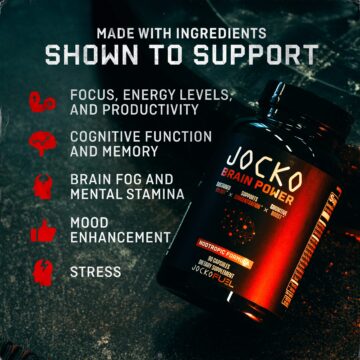
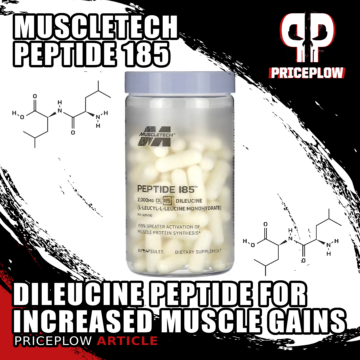
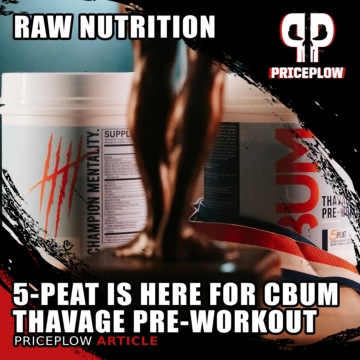
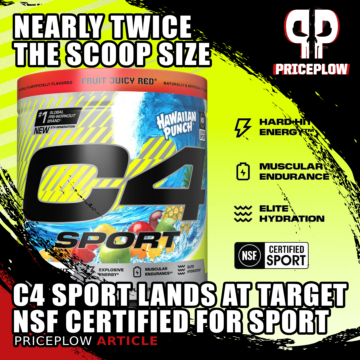
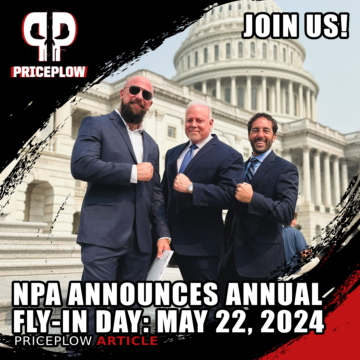
Comments and Discussion (Powered by the PricePlow Forum)